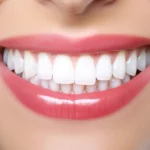When it comes to oral health, we all strive for a dazzling smile and fresh breath. However, maintaining healthy teeth goes beyond just aesthetics. Our oral health is directly linked to our overall well-being, and neglecting it can lead to a host of dental issues. From bad breath and tooth decay to tooth sensitivity, these problems can significantly impact our quality of life.
In the pursuit of healthy teeth, one crucial element we often overlook is tooth enamel. As the protective outer layer of our teeth, enamel plays a vital role in safeguarding them from damage and decay. Understanding the importance of tooth enamel and finding effective ways to protect it is essential for long-term oral health.
In this comprehensive blog post, we will delve into the world of oral care, exploring topics such as tooth enamel, tooth decay, and the role of calcium carbonate. We will also shine a spotlight on natural ingredients commonly found in toothpaste, such as mentha piperita and sodium bicarbonate, and their benefits for oral health.
But perhaps most intriguingly, we will unveil the power of hydroxyapatite toothpaste. Hydroxyapatite (HAP), a naturally occurring mineral and a significant component of tooth enamel, has gained recognition in recent years for its potential in promoting dental health. We will take a closer look at how hydroxyapatite toothpaste works, its benefits, and its impact on remineralization – the process of restoring essential minerals to our teeth.
Join us on this captivating journey as we explore the science, benefits, and considerations surrounding hydroxyapatite toothpaste. By the end of this blog post, you will have gained valuable insights into maintaining optimal oral health and making informed choices for your dental care routine.
So, let’s dive in and unlock the secrets to a healthier, happier smile!
Bad Breath: Causes, Prevention, and Treatment
Bad breath is a common and embarrassing problem that affects many people. It can be caused by a variety of factors, including poor oral hygiene, certain foods and drinks, and underlying health conditions. To combat bad breath, many people turn to mouthwashes.
Mouthwashes are a type of oral rinse that are designed to freshen breath, kill bacteria, and promote oral health. They come in a variety of flavors and formulations, and can be used as part of a daily oral hygiene routine or as a quick fix when bad breath strikes.
When choosing a mouthwash, it’s important to consider the ingredients and formulation. Look for mouthwashes that contain antibacterial agents like chlorhexidine or cetylpyridinium chloride, as well as fluoride to help strengthen teeth. Some mouthwashes also contain alcohol, which can be drying and irritating to the mouth, so it’s important to choose an alcohol-free option if you have sensitive gums or mouth sores.
Ultimately, the best mouthwash for bad breath will depend on your individual needs and preferences. In the following sections, we’ll take a closer look at some of the top mouthwashes on the market and help you choose the right one for you.
Best Products for Bad Breath
We all know how embarrassing bad breath can be, especially in social situations. But don’t worry, we’ve got you covered. After researching and testing various products, we’ve compiled a list of the best products for bad breath. Whether you’re looking for a quick fix or a long-term solution, we’ve got something for everyone. So without further ado, here are our top picks for banishing bad breath.
TheraBreath Fresh Breath Mouthwash

We highly recommend TheraBreath Fresh Breath Mouthwash for anyone looking to combat bad breath.
Pros
- Clinically shown to fight bad breath for 24 hours
- Alcohol-free and non-burning formula
- Certified kosher, vegan, and gluten-free
Cons
- More expensive than other mouthwashes
- Mild mint flavor may not be strong enough for some users
- May not be as effective for severe cases of bad breath
TheraBreath Fresh Breath Mouthwash is a dentist-formulated mouthwash that has been clinically shown to fight bad breath for 24 hours when used every 12 hours after brushing and flossing. The oxygenating compound in the alcohol-free formula starts working instantly and doesn’t burn or irritate the mouth. Additionally, this mouthwash is certified kosher, vegan, and gluten-free, making it a great option for those with dietary restrictions.
One potential downside of TheraBreath Fresh Breath Mouthwash is its price, as it is more expensive than other mouthwashes on the market. Additionally, the mild mint flavor may not be strong enough for some users who prefer a more intense flavor. Finally, while this mouthwash is effective for most cases of bad breath, it may not be as effective for severe cases.
Overall, we believe that TheraBreath Fresh Breath Mouthwash is a great option for anyone looking to combat bad breath and restore their confidence.
TheraBreath Fresh Breath Mouthwash

We highly recommend TheraBreath Fresh Breath Mouthwash for anyone looking for a reliable solution to bad breath.
Pros
- Clinically shown to fight bad breath for 24 hours
- Alcohol-free and non-burning formula
- Certified kosher, vegan, and gluten-free
Cons
- Slight medicinal aftertaste
- May run out quickly if not used in moderation
- More expensive than some other mouthwashes on the market
TheraBreath Fresh Breath Mouthwash is a dentist-formulated mouthwash that is powered by oxygen to fight bad breath. It is clinically shown to fight bad breath for 24 hours when used every 12 hours after brushing and flossing. This alcohol-free mouthwash doesn’t burn or irritate, and the oxygenating compound that fights bad breath starts working instantly. Additionally, it is certified kosher, vegan, and gluten-free.
While TheraBreath Fresh Breath Mouthwash is an effective solution for bad breath, it does have a slight medicinal aftertaste that some users may find off-putting. It may also run out quickly if not used in moderation, as it is more expensive than some other mouthwashes on the market.
Overall, we believe that TheraBreath Fresh Breath Mouthwash is a great choice for anyone looking for a reliable solution to bad breath that is backed by a 100% guarantee.
Understanding Tooth Enamel and Tooth Decay
Tooth enamel, often referred to as the “guardian of our teeth,” is the outermost layer that covers the tooth’s surface. It is an incredibly strong and durable substance, known for its ability to withstand the daily wear and tear of chewing and biting. In fact, enamel is the hardest substance in the human body, even stronger than bone!
The primary role of tooth enamel is to protect the underlying layers of the tooth, including the dentin and dental pulp, from damage and decay. It acts as a shield against acid attacks, plaque buildup, and harmful bacteria that can lead to dental issues such as cavities and gum disease.
However, despite its remarkable strength, tooth enamel is not invincible. It can be eroded over time due to various factors, including poor oral hygiene, excessive consumption of acidic and sugary foods, and certain medical conditions. This erosion can lead to tooth sensitivity, weakened enamel, and an increased risk of tooth decay.
Tooth decay, also known as dental caries, is a common oral health problem that occurs when the enamel is damaged and breaks down, allowing bacteria to penetrate the tooth’s surface. This can result in the formation of cavities or holes in the teeth, which, if left untreated, can progress and cause further damage to the tooth structure.
One of the main culprits behind tooth decay is the acid attacks that occur in our mouths. When we consume foods and beverages high in sugar and starch, the bacteria in our mouths convert these substances into acids. These acids then attack the tooth enamel, gradually wearing it down and creating an environment conducive to decay.
Furthermore, the presence of dental plaque, a sticky film of bacteria that forms on our teeth, can exacerbate the problem. Plaque buildup provides a breeding ground for harmful bacteria, leading to an increased risk of tooth decay and gum inflammation.
In order to combat tooth decay and preserve tooth enamel, it is crucial to adopt a comprehensive oral care routine. This includes regular brushing, flossing, and rinsing with an effective toothpaste. The choice of toothpaste plays a significant role in maintaining optimal oral health, as it can provide the necessary protection and support for tooth enamel.
One of the key ingredients to look for in toothpaste is calcium carbonate. Calcium carbonate is a naturally occurring mineral that helps strengthen tooth enamel and promotes remineralization. By incorporating toothpaste enriched with calcium carbonate into your oral care routine, you can enhance the defense mechanisms of your teeth and prevent further enamel erosion.
In the next section, we will explore the significance of calcium carbonate in toothpaste and its role in combating tooth sensitivity and decay. We will also delve into the benefits of fluoride toothpaste and discuss the considerations when choosing the right toothpaste for your needs.
Exploring Natural Ingredients in Toothpaste
When it comes to choosing the right toothpaste, many individuals are now seeking more natural alternatives that not only provide effective oral care but also minimize their exposure to synthetic ingredients and harsh chemicals. Natural toothpaste options have gained popularity as they often contain ingredients derived from plants and minerals, offering a more biocompatible and eco-friendly approach to oral care.
One commonly used natural ingredient in toothpaste is mentha piperita, also known as peppermint oil. Peppermint oil not only provides a refreshing flavor but also possesses antimicrobial properties that can help combat bad breath and inhibit the growth of bacteria in the mouth. Additionally, it can leave a pleasant sensation of freshness after brushing.
Another natural ingredient that is often found in toothpaste is sodium bicarbonate, more commonly known as baking soda. Sodium bicarbonate acts as a mild abrasive that can help remove surface stains and plaque buildup from the teeth. Its alkaline nature also helps neutralize acids in the mouth, contributing to a more balanced oral environment and reducing the risk of tooth decay.
In recent years, toothpaste containing hydroxyapatite (HAP) has gained attention for its potential benefits in oral care. HAP is a naturally occurring mineral that is a major component of tooth enamel. By incorporating HAP into toothpaste, it is believed to promote remineralization and strengthen tooth enamel, making it a promising ingredient for those looking to maintain healthy teeth.
While natural ingredients in toothpaste offer promising benefits, it is essential to be aware of any potential side effects or allergic reactions. For example, some individuals may experience sensitivity or irritation to certain natural ingredients, such as peppermint oil. It is always recommended to test a small amount of toothpaste on a patch of skin or consult with a dentist if you have any concerns.
When it comes to choosing a toothpaste, it is important to consider your specific oral health needs. Different individuals may require different formulations based on factors such as tooth sensitivity, gum health, or specific medical conditions. Consulting with a dentist can help you determine the best toothpaste for your unique circumstances.
In the next section, we will delve deeper into the power of hydroxyapatite toothpaste, exploring how it works to promote oral health and remineralization. We will also discuss the results of clinical trials and studies that have examined its effectiveness in comparison to traditional fluoride-based toothpaste. So, let’s continue our journey to uncover the secrets of optimal oral health.
The Power of Hydroxyapatite Toothpaste
Hydroxyapatite (HAP) toothpaste has been making waves in the dental industry, with its potential to revolutionize oral care. Hydroxyapatite is a naturally occurring mineral that is a major component of tooth enamel. It is chemically similar to the hydroxyapatite found in our teeth, making it a biocompatible material.
One of the main benefits of hydroxyapatite toothpaste is its ability to promote remineralization, which is the process of restoring essential minerals to the teeth. When our teeth are exposed to acid attacks from bacteria or acidic foods, minerals such as calcium and phosphate are leached from the enamel. Over time, this mineral loss can weaken the enamel and increase the risk of tooth decay.
Hydroxyapatite toothpaste works by delivering these essential minerals back to the teeth, helping to repair and strengthen the enamel. It forms a protective layer on the tooth surface, acting as a shield against acid attacks and preventing further mineral loss. By promoting remineralization, hydroxyapatite toothpaste can help reverse early signs of tooth decay and improve overall dental health.
In addition to its remineralization properties, hydroxyapatite toothpaste also offers other benefits. It can help reduce tooth sensitivity by sealing exposed dentinal tubules, which are tiny channels that connect the inner layer of the tooth to the nerves. By blocking these tubules, hydroxyapatite toothpaste provides relief from tooth sensitivity and discomfort.
Furthermore, hydroxyapatite toothpaste has been shown to have antimicrobial properties, inhibiting the growth of bacteria that can cause plaque buildup and lead to tooth decay. This makes it an effective tool in preventing oral health issues and maintaining a healthy oral microbiome.
Clinical trials and studies have demonstrated the effectiveness of hydroxyapatite toothpaste in comparison to traditional fluoride-based toothpaste. Research has shown that hydroxyapatite toothpaste can provide a significant reduction in plaque formation, as well as improvements in tooth whiteness and overall oral health.
It is important to note that hydroxyapatite toothpaste is not a replacement for regular dental check-ups and professional cleanings. However, incorporating it into your oral care routine can be a valuable addition to maintaining optimal dental health.
In the next section, we will explore other natural alternatives for dental care, such as tea tree oil and coconut oil, and discuss their potential benefits. We will also delve into the considerations when choosing the best toothpaste for your individual needs. So, let’s continue our journey to discover the secrets of a healthier smile.
Exploring Natural Alternatives for Dental Care
In recent years, there has been a growing interest in natural alternatives for dental care. Many individuals are seeking toothpaste options that are free from synthetic ingredients, artificial colors, and harsh chemicals. Natural toothpastes often contain plant-based ingredients known for their oral health benefits, providing a more holistic approach to oral care.
One popular natural ingredient found in toothpaste is tea tree oil, derived from the leaves of the Melaleuca alternifolia tree. Tea tree oil possesses powerful antimicrobial properties, which can help combat bad bacteria in the mouth. It has been shown to inhibit the growth of bacteria responsible for plaque formation and gingivitis, making it a valuable addition to oral care routines.
Another natural alternative is coconut oil, which has gained recognition for its potential benefits for dental health. Coconut oil contains lauric acid, a fatty acid known for its antimicrobial properties. When used as an ingredient in toothpaste, coconut oil can help reduce plaque buildup, fight gum disease, and promote a healthier oral microbiome.
Apart from these natural ingredients, there is another exciting development in the field of dental care – the use of natural hydroxyapatite. Natural hydroxyapatite is a form of calcium phosphate that closely resembles the hydroxyapatite found in our teeth. It has been gaining attention for its potential to promote remineralization and strengthen tooth enamel.
Hydroxyapatite toothpaste containing this natural mineral has been shown to be effective in repairing and rebuilding the tooth structure. Research has demonstrated that hydroxyapatite toothpaste can help restore the mineral content of teeth, leading to stronger enamel and a reduced risk of tooth decay. Moreover, it has been found to be safe and biocompatible, making it an excellent option for those seeking natural alternatives for dental care.
When choosing natural toothpaste options, it is important to consider the presence of other ingredients as well. Look for toothpaste brands that use natural flavors and vegetable glycerin instead of artificial flavors and sweeteners. Additionally, consider toothpaste brands that are free from harsh chemicals, artificial colors, and unnecessary additives.
It is worth noting that natural toothpaste options may vary in terms of their effectiveness for different individuals. Factors such as personal preferences, oral health conditions, and specific dental needs should be taken into consideration when selecting the best toothpaste for you. Consulting with a dentist can provide valuable insights and recommendations tailored to your unique circumstances.
In the next section, we will dive deeper into the concept of dental caries and explore the benefits of hydroxyapatite toothpastes in preventing tooth decay. We will also discuss the role of fluoride treatments and the considerations when choosing the right toothpaste for your oral health journey. So, let’s continue our exploration of natural dental care options, aiming for healthier and happier smiles.
Preventing Tooth Decay with Hydroxyapatite Toothpastes
Dental caries, commonly known as tooth decay or cavities, is a prevalent oral health issue that affects people of all ages. It occurs when the enamel of the tooth is damaged, leading to the formation of small holes or cavities. If left untreated, tooth decay can progress and cause significant pain, infections, and even tooth loss.
Preventing tooth decay is crucial for maintaining optimal oral health. Traditional toothpastes commonly contain fluoride, a mineral known for its ability to strengthen tooth enamel and prevent cavities. However, for individuals who prefer to avoid fluoride or are looking for alternative options, hydroxyapatite toothpaste offers a promising solution.
Hydroxyapatite toothpaste contains a synthetic version of hydroxyapatite, a naturally occurring mineral that is a major component of tooth enamel. This synthetic hydroxyapatite closely resembles the natural hydroxyapatite found in teeth, making it an effective ingredient for preventing tooth decay.
One of the primary benefits of hydroxyapatite toothpaste is its ability to promote remineralization. When applied to the teeth, hydroxyapatite particles bond with the tooth surface, filling in microscopic gaps and defects in the enamel. This process helps to restore essential minerals, such as calcium and phosphate, to the teeth, strengthening the enamel and making it more resistant to acid attacks and decay.
Furthermore, hydroxyapatite toothpaste has been shown to have a significant impact on reducing plaque buildup. Plaque is a sticky film of bacteria that forms on the teeth and can contribute to the development of cavities. Hydroxyapatite particles in toothpaste have been found to inhibit the adhesion and growth of harmful bacteria, preventing the formation of plaque and reducing the risk of tooth decay.
Clinical trials and studies have provided promising results regarding the effectiveness of hydroxyapatite toothpaste in preventing tooth decay. Research has shown that hydroxyapatite toothpaste can be as effective as fluoride-based toothpaste in reducing the incidence of cavities and improving overall oral health. These findings make hydroxyapatite toothpaste a viable option for individuals seeking an alternative to fluoride-based products.
When selecting a hydroxyapatite toothpaste, it is essential to choose a reputable brand that adheres to high-quality standards. Look for toothpaste that contains a sufficient concentration of hydroxyapatite particles and is free from unnecessary additives or harsh chemicals. Reading customer reviews and consulting with dental professionals can also provide valuable insights and guidance in choosing the right product for your oral health needs.
In the next section, we will take a closer look at different types of toothpaste available in the market and discuss how to choose the best toothpaste for your specific needs and preferences. So, let’s continue our exploration of dental care options, aiming for healthier smiles and stronger teeth.
Choosing the Best Toothpaste for Your Needs
With countless toothpaste options available on the market, choosing the right one for your oral health needs can be a daunting task. Understanding the key factors to consider can help you make an informed decision and find a toothpaste that aligns with your preferences and goals. Best products are here.
- Main Ingredients: When selecting a toothpaste, it is important to pay attention to the main active ingredient. Fluoride is widely recognized for its ability to strengthen tooth enamel and prevent tooth decay. If you prefer fluoride-free options, look for toothpaste that contains alternative ingredients such as hydroxyapatite, which promotes remineralization and strengthens enamel.
- Specific Dental Concerns: Take into account any specific dental concerns you may have. If you experience tooth sensitivity, look for toothpaste formulated to address this issue, often containing ingredients like potassium nitrate or strontium chloride. For those prone to plaque buildup or gum inflammation, consider toothpaste with antibacterial properties or specialized formulations for gum health.
- Medical Conditions: Certain medical conditions, such as dry mouth or gum disease, may require specialized toothpaste. Consult with your dentist to determine if there are any specific toothpaste recommendations based on your medical history or ongoing treatments.
- Flavor and Sensations: Toothpaste comes in a variety of flavors, from traditional mint to fruit or herbal options. Choose a flavor that you enjoy, as it can make your brushing experience more pleasant and encourage consistent oral care habits. Additionally, consider the sensations toothpaste provides, such as freshness or foaming, and select a toothpaste that aligns with your preferences.
- Considerations for Children: When choosing toothpaste for children, it is important to select age-appropriate options. Children’s toothpaste usually contains lower levels of fluoride and comes in flavors that are appealing to young taste buds. Look for toothpaste specifically designed for children and ensure they use an appropriate amount under adult supervision.
- Quality and Brand Reputation: Opt for toothpaste from reputable brands known for their commitment to quality and safety. Research the brand’s reputation, read customer reviews, and consider recommendations from dental professionals to ensure you are selecting a reliable and effective product.
Remember, while toothpaste is an essential part of maintaining oral health, it should be used in conjunction with regular brushing, flossing, and dental check-ups. Developing a consistent oral care routine, along with choosing the right toothpaste, will help you achieve optimal oral health and maintain a beautiful smile.
In conclusion, the best toothpaste for you will depend on your specific needs, preferences, and dental concerns. Consider the main ingredients, address any specific dental issues, and take into account factors such as flavor, sensations, and brand reputation. By making an informed choice and staying committed to your oral care routine, you can enjoy the benefits of a healthy mouth and a confident smile.










